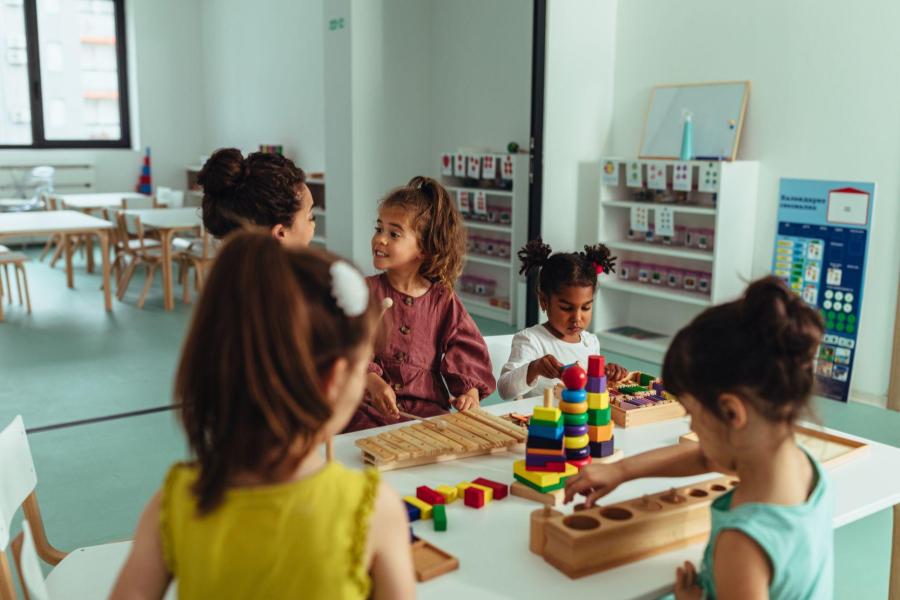
If you’re a parent who has ever worried that your young child’s time in a child care center could be linked to behavioral issues, new research from the University of Minnesota may provide relief.
A study recently published in Child Development suggests that spending more hours in center-based child care shows no relation to young children’s development of behavioral problems.
The study, co-authored by Daniel Berry, an associate professor in the Institute of Child Development in the College of Education and Human Development, looked at data collected from 10,105 toddlers and preschoolers — both in the U.S. and internationally — between 1993 and 2012. Teachers and parents reported on whether the children exhibited behavior problems such as hitting, biting or kicking other children, as well as fighting or bullying other children, being “spiteful to others,” being “restless and can’t sit still” or whether the “child argues a lot.” The study adjusted for other contextual factors in a child and family’s lives to more accurately understand the true cause of the observed behaviors.
The study found:
- Little evidence that more time spent in center-based child care was associated with more behavior problems.
- No evidence that two key indicators of socioeconomic status — family income and maternal education — made a difference in any links between the number of hours in center-based care and behavioral problems.
“The debate about the potential effects of attending child care on children’s development of behavior problems, like aggression, has been around for decades. However, the evidence was mixed — especially when investigators used statistical techniques to try to rule out alternative explanations for the association,” said Berry. “While we want to be careful in our data interpretation, the fact that we find so little support for a connection between child care hours and behavior problems across a number of large samples of children — collected across countries with a range of social policies concerning child care and family leave — is compelling. Taken together with the considerable evidence that high-quality child care experiences can support children’s early learning, this reinforces the case for the importance of early childhood education.”
Next steps include clarifying for whom the benefits of early child education are most pronounced, and whether the findings generalize to less affluent countries, in which children’s home and child care experiences may be quite different. More broadly, the evidence speaks to the importance of researching new ways to increase the access, affordability and equitable distribution of high-quality child care for families who want it. The pandemic has only reinforced how critical access to child care is for families and the economy more broadly.
Funding was provided by the National Institute of Health Office, National Institute of Child Health and Human Development, the Research Council of Norway and the European Research Council Consolidator Grant.
-30-
About the College of Education and Human Development
The University of Minnesota College of Education and Human Development (CEHD) strives to teach, advance research and engage with the community to increase opportunities for all individuals. As the third largest college on the Twin Cities campus, CEHD research and specialties focus on a range of challenges, including: educational equity, teaching and learning innovations, children’s mental health and development, family resilience, and healthy aging. Learn more at cehd.umn.edu.
- Categories:
- Education
- Early childhood





